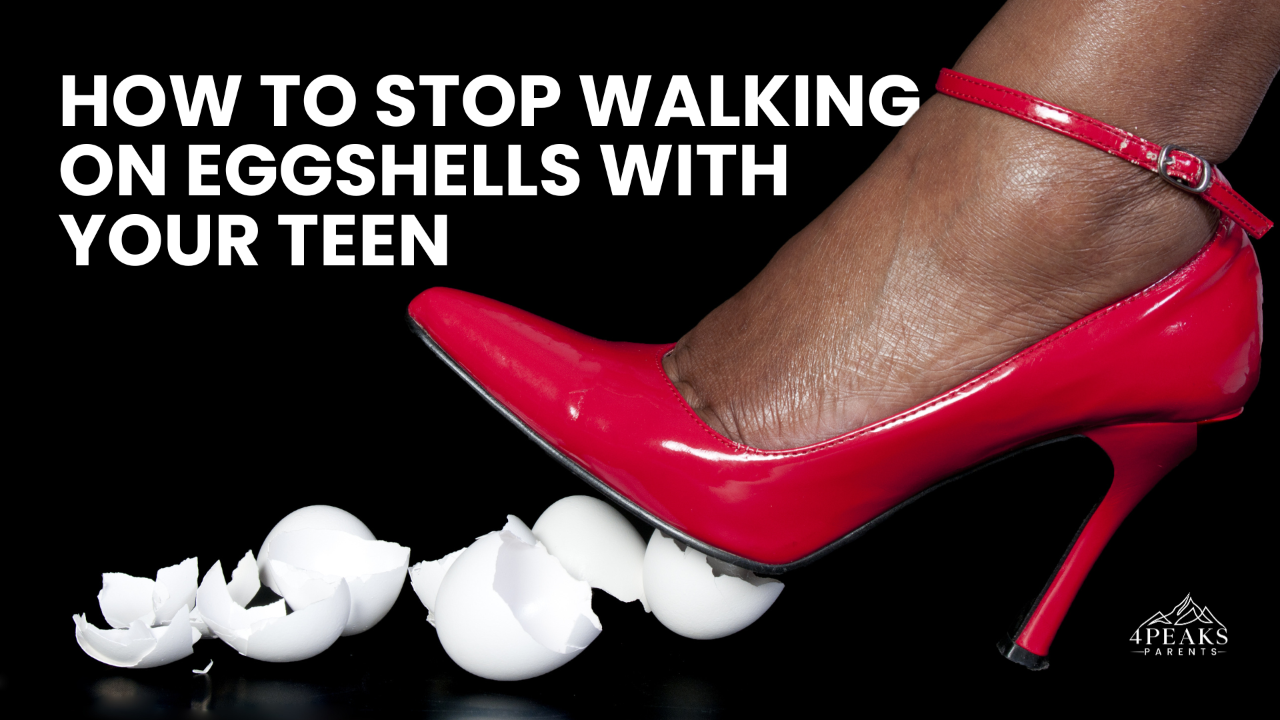How to Stop Walking on Eggshells with Your Teen
May 15, 2025
The Real Reason Your Home Feels Like a War Zone (And How to Fix It)
You tiptoe into the house, bracing for impact. One wrong word, one misinterpreted tone, and BOOM—the explosion. Maybe it's eye rolls and sarcasm. Maybe it's yelling, door slamming, or dead silence. Either way, your home feels like an emotional minefield. You love your kid, but you're exhausted.
Sound familiar? You're not alone.
Why Is Parenting Teens So Hard?
Parenting today is not the same as it was when we were kids. The pressures, expectations, and emotional stressors teens face are off the charts. Meanwhile, as parents, we’re left second-guessing ourselves:
✔ "Should I push harder or back off?"
✔ "Am I being too strict or too lenient?"
✔ "Why do they treat me like the enemy when I’m trying to help?"
✔ "How do I get them to just TALK to me?"
The truth? Most parents are playing defense instead of leading with confidence. And when we’re reactive instead of intentional, the house feels like a battleground instead of a home.
The #1 Parenting Shift You Need to Make
If you're constantly walking on eggshells around your teen, it’s because you’ve fallen into a pattern of chronic reactivity—waiting for them to set the tone and then responding to their mood.
🔥 Here’s the shift: You need to become the emotional anchor in your home. Your child’s emotions shouldn’t dictate yours. The more grounded you are, the more stable they will feel.
How do you do that? Start with these three steps:
1. Detach from the Drama
Your teen slams a door. Talks back. Gives attitude. Instead of reacting, take a breath. Pause before engaging. If they’re dysregulated, jumping in emotionally will only escalate things.
👉 Instead, say, "I can see you’re upset. Let’s talk when we’re both calm." Then walk away. Your calm response models emotional regulation.
2. Shift the Power Dynamic
Many parents get caught in power struggles without realizing it. If your home feels like a constant battle, it’s time to change the rules. Instead of controlling behavior, influence their mindset.
For example:
🚫 "You’re being lazy. Get off your phone and do your homework."
✅ "I know you care about your grades—how can I support you in getting this done?"
See the difference? When we invite rather than demand, kids engage more freely.
3. Lead with Boundaries, Not Fear
One of the biggest mistakes parents make? Backing off because they’re afraid of pushing their child away. Your teen needs structure, even when they fight it. It gives them safety and stability.
✔ Set clear expectations
✔ Hold firm boundaries (without anger)
✔ Allow for natural consequences
The key? Consistency over time. If your kid knows you mean what you say, the power struggles decrease.
Want Help Putting This Into Practice?
If you’re tired of the fights, the tension, and feeling like you’re losing your kid, you don’t have to figure this out alone. This is exactly what I teach inside the 4 Peaks Parents Program.
Inside, I’ll help you:
✅ Set boundaries that actually work (without constant battles). ✅ Handle teen emotions without absorbing their stress. ✅ Reconnect with your kid so they actually WANT to talk to you. ✅ Feel more confident, more in control, and less overwhelmed.
🚀 Join the 4 Peaks Parents Program today! 🚀📅 Book a FREE strategy call to see if it’s a fit.
Parenting doesn’t have to be this hard. Let’s create a home where everyone feels respected, supported, and connected.
